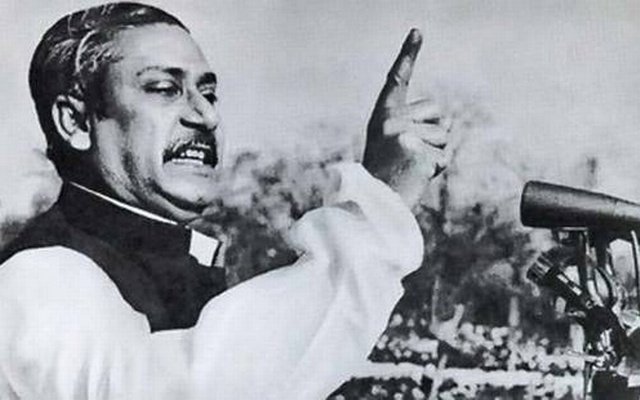Sheikh Mujibur Rahman, the founding father of Bangladesh, is commonly known as “Bangabandhu.” The term “Bangabandhu” means “Friend of Bengal” and was conferred upon him as a mark of respect for his immense contributions to the people of Bangladesh. In this article, we will discuss why Sheikh Mujibur Rahman is known as Bangabandhu and his significant role in the history of Bangladesh.
Sheikh Mujibur Rahman’s Early Life and Career
Sheikh Mujibur Rahman was born on March 17, 1920, in Tungipara, Bangladesh. He was the third child in a family of four daughters and two sons. His father, Sheikh Lutfur Rahman, was a government employee, and his mother, Sayera Khatun, was a housewife.
Sheikh Mujibur Rahman attended several schools in his early life, including Gopalganj Public School, Faridpur Zilla School, and Islamia College, Kolkata. He was an excellent student and showed a keen interest in politics from an early age.
Sheikh Mujibur Rahman began his political career by joining the Muslim League, a political party that advocated for the rights of Muslims in British India. However, he soon became disillusioned with the party’s policies, which he believed favored the West Pakistanis over the East Pakistanis.
In 1949, Sheikh Mujibur Rahman joined the Awami Muslim League, which later became the Awami League. He became a leading figure in the party and played a significant role in shaping its policies and ideology.
Sheikh Mujibur Rahman’s vision for a democratic, secular, and socialist Bangladesh was shaped by his experiences growing up in East Pakistan. He witnessed firsthand the discrimination faced by the people of East Pakistan, who were often treated as second-class citizens by the ruling elite.
Sheikh Mujibur Rahman believed that the people of East Pakistan deserved greater autonomy and control over their own affairs. He was a vocal advocate for the rights of the people of East Pakistan and worked tirelessly to promote their interests.
The Birth of Bangladesh
Sheikh Mujibur Rahman played a crucial role in the formation of Bangladesh, which was formerly known as East Pakistan. He was a leading figure in the independence movement and played a significant role in mobilizing the masses against the ruling elite. In 1971, after years of political unrest and discrimination, Sheikh Mujibur Rahman declared the independence of Bangladesh and became the country’s first president.
Why is Sheikh Mujibur Rahman known as Bangabandhu?
Sheikh Mujibur Rahman’s contributions to the formation of Bangladesh and his advocacy for the rights of the people of East Pakistan earned him the title of Bangabandhu. The term “Bangabandhu” was first used by a political activist named Abdul Hamid Khan Bhashani in 1969, during a political rally in Dhaka.
The term “Bangabandhu” was later widely adopted by the people of Bangladesh and became synonymous with Sheikh Mujibur Rahman. It was a mark of respect for his immense contributions to the country and his vision of a democratic, secular, and socialist Bangladesh.
Today, Sheikh Mujibur Rahman is remembered as a national hero in Bangladesh. His legacy as Bangabandhu lives on, and his vision of a democratic, secular, and socialist Bangladesh continues to guide the country’s future. The term “Bangabandhu” has become a symbol of hope and resilience for the people of Bangladesh and a reminder of Sheikh Mujibur Rahman’s unwavering commitment to the welfare of the people of Bangladesh.
Conclusion
Sheikh Mujibur Rahman’s contributions to the formation of Bangladesh and his advocacy for the rights of the people of East Pakistan earned him the title of Bangabandhu. The term “Bangabandhu” is a mark of respect for his immense contributions to the country and his vision of a democratic, secular, and socialist Bangladesh. Sheikh Mujibur Rahman’s legacy as Bangabandhu lives on, and his vision of a better Bangladesh continues to inspire the people of the country.
You can also read: Political career of Bangabandhu Sheikh Mujibur Rahman


